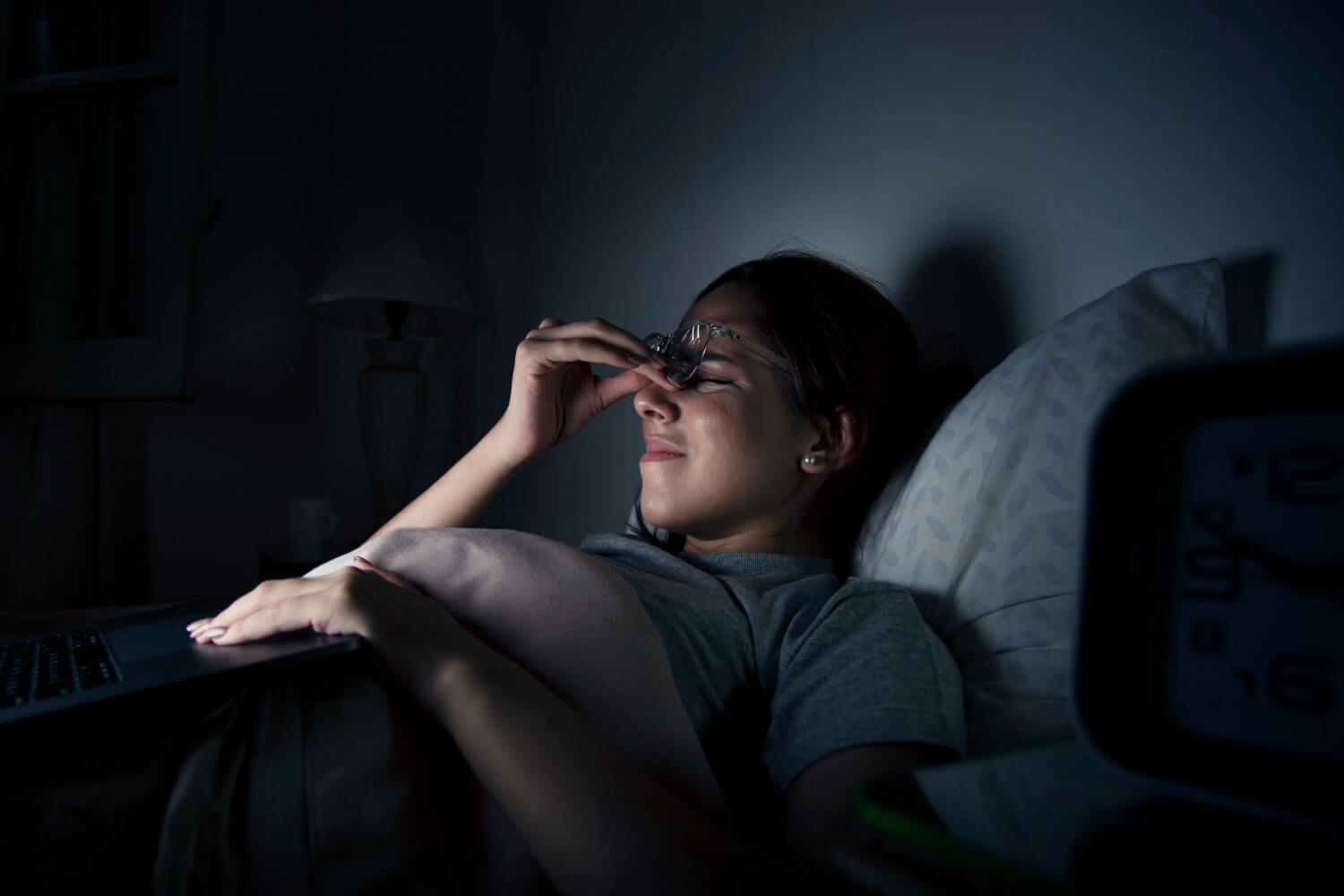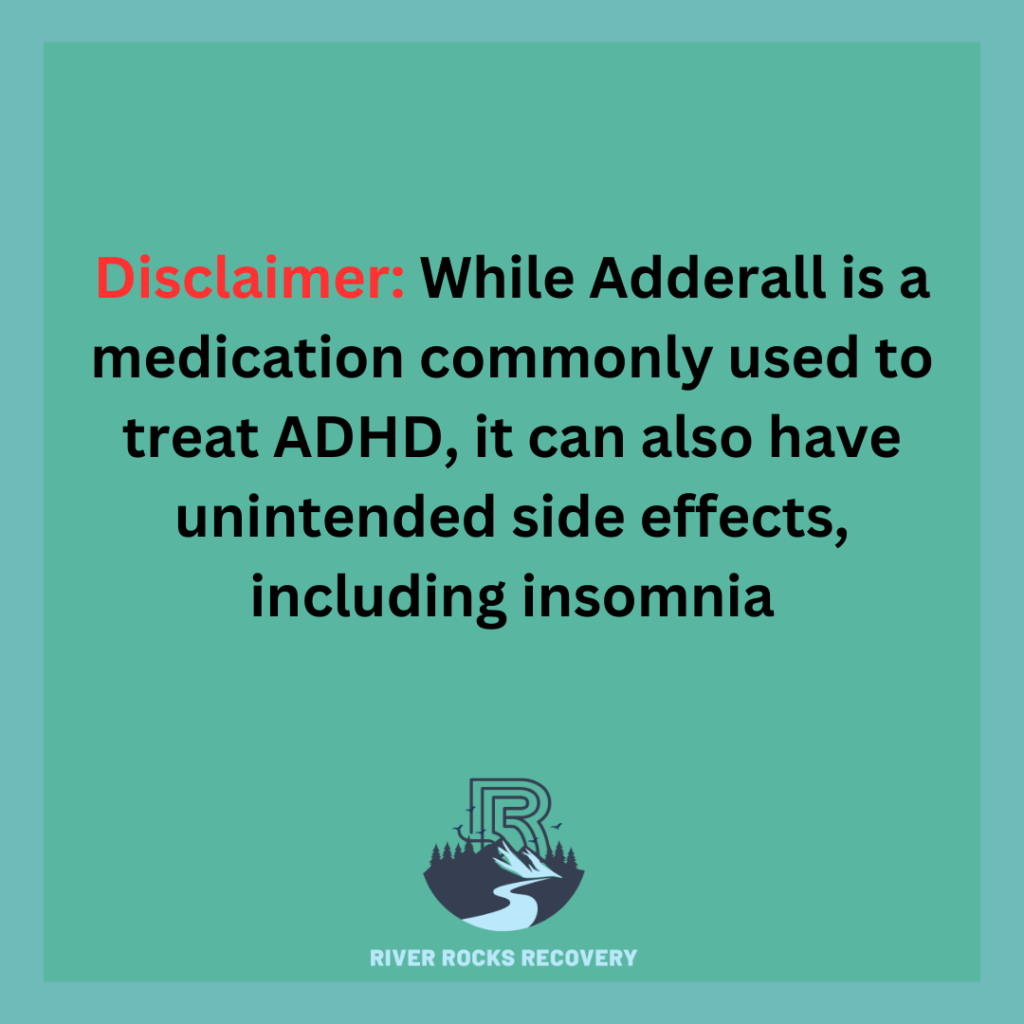Adderall is an effective treatment for ADHD and narcolepsy, helping people stay focused and energetic throughout the day. However, its undesirable side effect: difficulty in falling asleep at night is a matter of concern these days.
If you’ve found yourself lying awake long after taking your prescription, you’re not alone. Many people experience sleep disruptions as a result of Adderall’s stimulant effects.
In this blog, we will learn the practical techniques and strategies to help you relax so you can get a good night’s sleep without risking the effectiveness of your medication. Let’s scroll it down!
The Impact of Adderall on Sleep
Adderall works by raising the amounts of neurotransmitters in the brain, such as dopamine and norepinephrine, which aid with concentration and alertness. While these effects are beneficial throughout the day, they might cause insomnia or poor sleep quality if the medicine remains in your system too close to bedtime.
If you notice a lack of sleep, so here are the tips you may follow to get a good night’s sleep without any awakens.
Proven Tips for Restful Nights
1. Take your Dose on Time
One of the most effective strategies to improve sleep is to take Adderall early in the day. This gives your body adequate time to process the medication before bedtime. If you take multiple doses, talk to your doctor about changing the timing or switching to an extended-release formula that better fits your sleep schedule.
2. Create a Relaxing Bedtime Routine
Creating a consistent and peaceful pre-sleep ritual can alert your body that it’s time to relax. This could be reading a book, doing deep breathing exercises, or having a warm bath. Avoid stimulating activities, such as using electronic gadgets, as these can interfere with your ability to fall asleep.
3. Limit caffeine and other stimulants
While it may appear apparent, it’s crucial to note that taking caffeine or other stimulants later in the day might worsen the wakefulness caused by Adderall. So, limit your intake of caffeinated beverages, especially in the afternoon and evening.
4. Prioritize Sleep hygiene
Good sleep hygiene involves creating an environment conducive to sleeping. Make sure your bedroom is cool, dark, and quiet. Invest in a comfy mattress and pillows, and use your bed just for sleep and relaxation—no work or electronics permitted.
5. Stay Physically Active
Regular physical activity can help lessen Adderall’s stimulating effects and improve sleep. Invest 30 minutes in a day to perform activities. However, avoid strenuous workouts close to bedtime, as they can have the opposite impact.
6. Consult Your Doctor about Sleep Concerns
If your sleep problems persist despite these techniques, you should talk to your doctor about further treatment options. They may alter your dosage, propose a new drug, or suggest cognitive-behavioral treatment for insomnia (CBT-I) to help you build better sleep habits.
Finding the Right Balance? Call River Rocks Recovery!
Balancing the benefits of Adderall with the need for sufficient sleep can be difficult, but with the appropriate tactics, you can get restful nights without sacrificing daily productivity.
Remember that everyone’s body reacts differently to drugs, so finding the perfect method may involve some trial and error. Don’t take stress, call River Rocks Recovery if necessary.
We are dedicated to offering evidence-based addiction therapy programs that provide hope, support, and the tools necessary to overcome addiction. Our therapeutic programs are tailored to meet the specific needs of people suffering from addiction. So, what are you waiting for? Give us a call right now at:(888) 905-6281 and find the best addiction treatment program for you.
FAQs: Struggling to Sleep After Adderall?
How does Adderall affect sleep?
Adderall can make it difficult to fall asleep and stay asleep, especially when taken later in the day. This is because Adderall stimulates the central nervous system, making it harder for the brain to wind down.
When should I take Adderall to minimize sleep disturbances?
It’s generally recommended to take Adderall in the morning to avoid disrupting sleep. However, your doctor may recommend a different dosing schedule based on your individual needs.
How can I create a sleep-conducive environment?
Establish a relaxing bedtime routine, create a dark and quiet sleep environment, and avoid caffeine and alcohol before bed.
What lifestyle changes can I make to improve sleep quality?
Regular exercise, a healthy diet, and stress management techniques can all contribute to better sleep.
Should I talk to my doctor about my sleep problems?
It’s important to talk to your doctor about any sleep problems you’re experiencing while taking Adderall. They may be able to adjust your dosage or recommend other strategies to improve your sleep.
Are there alternative sleep aids I can use while taking Adderall?
Your doctor may recommend over-the-counter sleep aids or prescription sleep medications. However, it’s important to discuss these options with your doctor to avoid interactions with Adderall.
Is it safe to take melatonin while taking Adderall?
Melatonin is a hormone that regulates sleep-wake cycles. While it’s generally considered safe, it’s important to talk to your doctor before taking melatonin if you’re also taking Adderall.





























